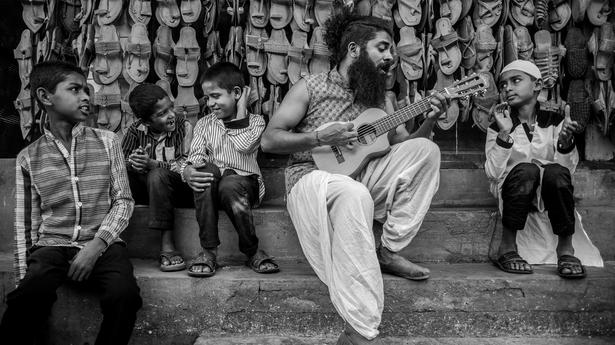
Carnatic rock musician Vasu Dixit’s docuseries shows how India’s tribes sing
The Hindu
A small team, led by Carnatic rock musician Vasu Dixit, travelled the country recording folk and tribal musicians. The music — and the stories — are now online
The country teems with musical forms that are yet undiscovered by the masses. Just ask folk-rock musician Vasu Dixit. Famous for his part in bands like Swarathma and Vasu Dixit Collective, he asked fellow musicians to introduce him to tribal music of their land — and realised he had opened the floodgates.
Now, Vasu’s documentary series introduces the Internet to tribal and folk music from Manipur, Meghalaya, Sikkim, Karnataka and Tamil Nadu. Each musician covered in the PaDa Project, brings forth a new form of singing, or a lesser-known instrument, or something that is utterly unique to his or her village and culture.
“In Shillong we went to a village whose people name their children based on a particular tune. They literally hum the tune to call their children. There is a word for this kind of nickname; it translates to ‘tune-name’,” says Vasu.
The team’s list of such discoveries is long. Vasu adds: “Mickma Tshering Lepcha from Sikkim was playing an instrument called tunbuk, which is like a dotara. In Manipur, singer Mangka Mayanglambam has a style that is more like storytelling, with conversation inbetween. That format is a part of her culture, but more than that, it is a style that she has personally developed. She says that even while she was learning, her teachers never wanted her to sing in an exact way: it is the norm that you add your own flavour.”
When tradition itself insists on innovation, you know you have stumbled upon something unique. Vasu admits as much, and explains how, originally, he had never intended such a spree of discoveries.
“My initial idea was to cover eight to 10 artistes in Karnataka alone, because of my familiarity with the language and the music here. But I understand why the sponsors [Believe India and Ishtar Music, in partnership with Snehadhara Foundation] wanted a pan-India approach,” he says, adding, “Once we decided that, I decided to go for Manipur and Meghalaya. Because when you say folk music, the image in most people’s minds is that of Rajasthan or Punjab. Not that I won’t cover those states too, but I wanted to start with something that has not been explored as much.”
Vivek Raina of Believe India reiterates as much, and states that the team sees this project as a way to “use our marketing and digital expertise to facilitate these artistes in to come out in public and show their talent.” He believes there are some gaps in the market, that they can fill in this way.











